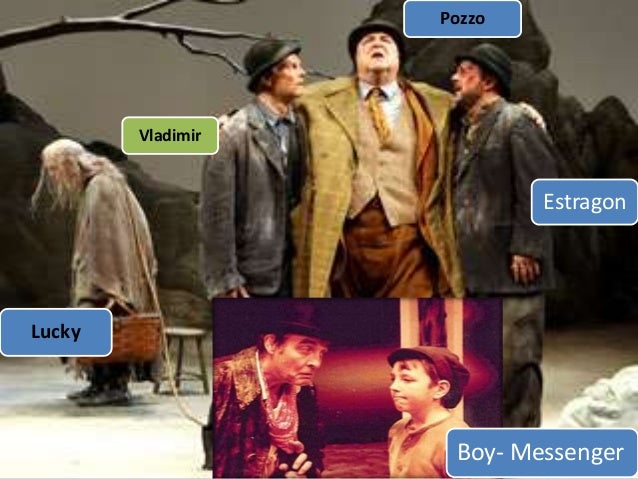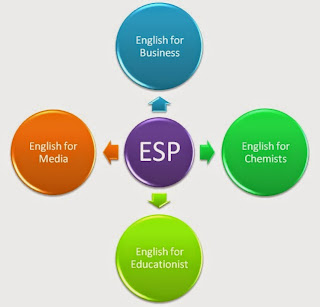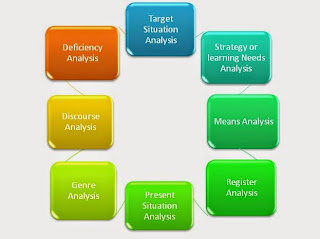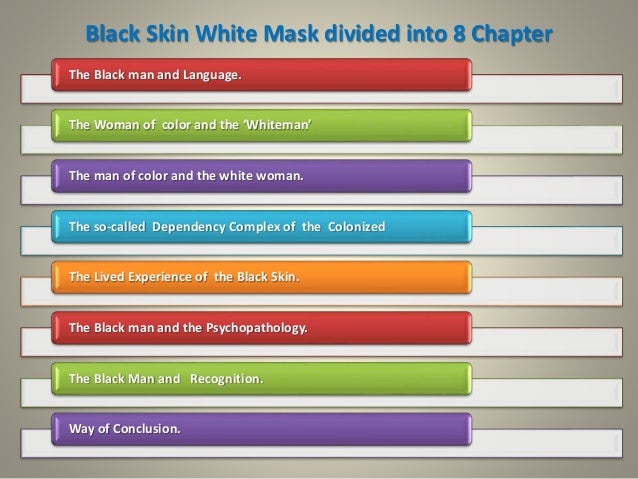Sunday, 27 November 2016
Thursday, 10 November 2016
Paper 9 Character analysis in Waiting for Godot
Evaluate my assignment click here
SUBMITTED TO :- S. B. GARDY DEPARTMENT OF ENGLISH M.K.BHAVNAGAR UNIVERSITY.
Written
by:- Vala Jyotsna T
Course
No:-09 The modernist Literature.
Enrollment
no :- PG15101042
Topic:- character analysis in Waiting for Godot
Introduction
: -

Writer
– Samuel Becket.
Born
– 13 April 1906 in Foxrock, Dublin,
Ireland.
Died
– 22 December 1989 in
Paris, France.
Occupation
– Novelist, Playwright, Poet,
Theater Director, Essayist.
Notable
Awards – Noble Prize in Literature
1969.
His
work –
Waiting
For Godot (1953).
Molly
(1951).
The
Unnamable (1953).
Watt
(1953).
About
Waiting For Godot : -
- Waiting For Godot is originally wrote inFrance 1948, Beckett translated the play into English.
- Vladimir and Estragon are protagonist. Bothare waiting for unknown person Mr.Godot,but he never come.
- Waiting For Godot was part of “Theater ofAbsurd”. This implies that it is meant to beirrational.
- It is Nothingness, Waiting and Absurd ideasin the play.
Characters
Analysis :-

1).
Vladimir
2).
Estragon
3).
Pozzo
4).
Lucky
5).
A Boy
6).
Mr. Godot
Character
of Vladimir : -
Vladimir
is a protagonist in this play. One of
the two main characters of the
play. He seems
to be the more responsible and mature of the
two main
character. He is a very intellect
rather than Estragon.
Character
of Estragon:-
The
second of the two main character. He
seems very weak and helpless, he
also has a
very poor memory and forgot every thing, as
Vladimir has
to remained him.
Binaries
between these two Character
Vladimir
|
Estragon
|
Represents
the Soul.
|
Represents
the body.
|
Vladimir
– Mind
–
intellect.
|
Estragon
– body - physical
|
Estragon
call him DIDI.
|
Vladimir
call him GOGO.
|
Intellect,
Thinking and Mental Man.
|
No
thinking, and Physical Weak.
|
Symbols
of Hat.
|
Symbol
of Boots.
|
Attention
to Hat.
|
Attention
to boots and
food.
|
Tramp,
Homelessness.
|
Tramp,
Homelessness.
|
Remember
to every thing.
|
Sleep,
forget every thing.
|
Looks at
the sky and muses on religious or philosophical matters.
|
Belongs to
the stone.
|
Restless
man.
|
Inert man.
|
Represents
mind the actions of thinking, consciousness, reason.
|
Represents
the body's organic function and needs hunger, movement, pain.
|
Vladimir
is fascinated by the statistics of the Bible story.
|
Most
interested in the carrots and pozzo's chicken bones.
|
Protagonist.
|
Protagonist.
|
Fifty
years old.
|
Fifty
years old.
|
Character
of Pozzo : -
Pozzo
is a Sadistic master and Lucky's master.
He is a very rich and
powerful. He passes by
the spot where Vladimir and Estragon are
waiting and provides a diversion. In the second
act, he is blind and
forget about meeting
vladimir and Estragon the night before.
Character
of Lucky:-
Lucky
is the submissive slave and Pozzo's
slave. He is a very poor and
powerless man and
he always think about his master. Who carries
Pozzo's bags and stool. In Act 1, he entertains
by dancing and
thinking. However, in Act 2, he
is dumb.
Binaries
between these two Character

Pozzo
|
Lucky
|
Sadistic
Master.
|
Submissive
slave.
|
Superiority.
|
Inferiority.
|
Very rich,
powerful, Decisive, Confident.
|
Very poor
and powerless.
|
Not
thinking for his slave.
|
Always
thinking for his master.
|
Not give
respect and values.
|
Always give
respect and values.
|
Symbol of
oppression.
|
Symbol of
the oppressed and the repressed consciousness.
|
Pozzo is
the sadist.
|
Lucky is
the masochist.
|
Pozzo can
be seen as the Ego.
|
Lucky as
the ID.
|
Pozzo is
the circus ringmaster.
|
Lucky is
the trained or performing animal.
|
At the end
he was blind.
|
At the end
he was bum.
|
Sixty year
old.
|
Sixty year
old.
|
Character
of Boy :-
He
was a very minor character in this play. He
appears at the end of
each act to inform
Vladimir that godot will not be coming that
night.
In the second act, he insists that he was
not there the previous
night.
Character
of Godot :-
The
man for whom Vladimir and Estragon wait
unendingly. Godot never
appears in the play.
His name and character are often thought to
refer to godot.

Works
Cites :-
Tuesday, 8 November 2016
Topic: -“ English For Specific Purposes”by Tony-Dudley-Evans
To evaluate my assignment click here.
Submitted to - S. B. GARDY DEPARTMENT OF ENGLISH
M.K.BHAVNAGAR UNIVERSITY.
Name:- Vala Jyotsna Tanshukhbhai
Semester:
- 3
Roll
no: - 33
Enrollment
No: - PG15101042
Year:
- 2016-17
Paper
No: -12
Paper
Name: - ELT
Topic:
-“
English For Specific Purposes”by Tony-Dudley-Evans
“
English
For Specific Purposes”
Introduction:-

English for specific purposes (ESP) has for about 30 years
been a separate branch of
English Language Teaching. It
has developed its own approaches,
materials
and
methodology and is generally seen as a very active,even
'feisty'
movement that
has had considerable over the
more general activities of TESOL and
applied linguistics.
English
has became the internationally accepted
language of almost all the
fields of knowledge. Depending
on their specific needs and
requirements,s
new learners
who knew specifically why need English are created. In
some cases people with inadequate proficiency in English
need to be
taught to handle specific jobs. To
fulfill the
needs of these new learners new specific courses were
designed introduced. ESP is one of these specific courses.
From
early 1960's, ESP has emerged as one of the major
areas of EFL
teaching today. Various universities across
the globe are offering a
number of ESP courses nowadays.
EXAMPLES
:- English for Chemists, English for
Educationists, English for
Advertisements, English for
Media, etc.

Aspect of ESP – 1). Teaching
2).
Materials production
3).
Text- analysis
MEANING OF ESP
Dictionary
meaning of ESP :-
“ The
supposed ability to perceive to events and
information by means
other than the physical sense”.
ROBINSON
define ESP as.......
“ Goal
Directed”
HUTCHINSON
and WATERS (1975) says......
“
ESP is an approach rather than
a product”
Mackay
and Mountford 1975 define ESP as the
teaching of English for a
“ Clearly utilitarian
purpose”
“ESP is an approach to
teaching”.
“ESP
is an attitude of mind”.
Definition
of ESP

ESP is a term that refers to teaching or studying
English for a
particular career or for business in
general. ESP not to be confused
with specialized
English,is a spher of teaching English language
including Business English, Technical English,
Scientific English,
English for Art purposes, etc.
The
role of English in a language course of
programm of instruction in
which the content aims
of the course are fixed by the specific needs
of a
particular group of learners.
Characteristic
of English for Specific Purposes
(ESP)
ESP
is defined in the term of its absolute and
variable characteristic by
Tony Dudley Evens.
Absolute
Characteristics
- Meets specific needs of learners.
- Make use of underlying methodology and activities of the discipline it serves.
- Is centered on the language appropriate to these activities in terms of grammar, lexis, study skill, discourse and genre.
Variable
Characteristics
- May be related to or designed for specific disciplines.
- May use in particular situation, different methodologies from general English.
- Is likely to be designed for intermediate and advanced students.
- Most of the ESP courses assume some basic knowledge of the systems.
Classification
As
with most branches of TESOL and applied linguistics,
ESP if often
divided up into various categories with
mysterious acronyms.
Tony-Dudley-Evans
use two categories in ESP :-
1).
English For Academic purposes (EAP).
2).
English For Occupational purposes (EOP).
- EGAP – English for general academic purposes
- ESAP – English for specific academic purposes
- EGBP – English for general business purposes
- ESBP – English for specific business purposes
- CBI – Content – based instruction
- EVP – English for vocational purposes.
RESEARCH
Beyond
Needs Analysis :-
1).
Target situation analysis
2).
Learning situation analysis
3).
Present situation analysis
4).
Means analysis.


Chambers's 1980 This is generally called target
situation analysis.
ESP's
Stap :- 1. Initial Analysis
2.
Detailed Analysis
-
Learners
-
Level in English
-
Weakness in language
-
Skill needs
-
Learner's perception of
their needs.
The
Three Features Common To ESP
1.
Authentic materials
2.
Purpose – related orientation
3.
Self – direction.
Principles
of English for specific purposes
(ESP)
- Authenticity
- Research Base
- Learning Needs
- Learning/Mathodology.
Some
Of the Qualities of ESP as one of the ELT
branches
- ESP has specific needs
- ESP hascontent related materials
- ESP is centered on particular language function, kill...
- ESP is learner – centered
ESP is perceived as relevant
by the learners.
CONCLUSION
English
for specific purposes as an approach that is
based on the learner's
needs, and his expectations
behind learning language. To make it
clear, we will
just mention the guiding principle of ESP, which is “
tell me what you need English for,and i will tell you
the English
that you need”.
References
Dudley-Evens,
Tony(1998). Developments in English for Specific purposes: A multi-
disciplinary approach. Cambridge Universiry Press. (Forthcoming).
A Critical Analysis of ‘Black Skin White Masks’ paper - 11 The Post colonial Literature
Submitted to - S. B. GARDY DEPARTMENT OF ENGLISH
M.K.BHAVNAGAR UNIVERSITY.
Name:- Vala Jyotsna Tanshukhbhai
Semester:
- 3
Roll
no: - 33
Enrollment No: - PG15101042
Year:
- 2016-17
Paper
No: -11
Paper
Name: - The Post colonial Literature
Topic:
- A Critical Analysis of ‘Black Skin White Masks’
A Critical Analysis of ‘Black Skin
White Masks’ By Frantz Fanon
Introduction
of the writer:-

Frantz Omar Fanon was born in 20th July, 1925 at
Martinique and died in 6th December 1961- Mary
Land (U.S). He was Afro-Caribbean psychiatrist,
philosopher, and the French writer whose works are
influential in the field of post – colonial studies and
Marxist.
He
wrote his first book “Black Skin White Mask” in
France during 1952. He was a child of a Mulatto.
The Manuscript was the doctoral dissertation,
submitted at Lyon, entitled “Essay on the
Desalination of the Black; the rejection of the
dissertation prompted Fanon to publish it as a book.
His
contribution in literature and criticism are
1). Black Skin White Mask – (1952).
2).
A dying colonialism – (1959).
3).
Wretched of the Earth – (1961).
4).
Toward the African revolution – (1964).
“Black
Skin White Mask”:-
Introduction
:-

Black
Skin White Mask is a sociological study of the
psychology of racism and dehumanization inherent
to colonial domination. Fanon describes that black
people experience in the white world.
Fanon
talk about, self – perception of the black
subject who has lost his native cultural origin, and
embraced country. He also talks about the inferiority
complex in the mind of the black subject.
“ For
the black man there is only one destiny.
And it is white”.
- FANTZ
FANON.
“Black
Skin White Mask” is a book about the
mindset of psychology of racism. The black man
trapped in his blackness, the white man in his
whiteness, both trapped in to their mutual and
aggressive narcissism.
About
Black Skin White Mask : -
The
book is his doctoral thesis, Fanon wrote to get
his degree in psychiatry. This book is worth reading
since Fanon's understanding of
write France recism
in early 1950 and it can also helps to understand
white American racism in the 2010s.
The
book looks at what goes throug the minds of
blacks and whites under
the conditions of white rule
and the strange effects of that in black
people.
The
book is divided in to 8 chapter. In these eight
chapters,Fanon talks
about physiology of white
colonizers and black peoples desire to be
like white
men. He talks about issue of language,marriage
between
white and black people, psychology behind
it, white mindset of
ruling, Black's inequality and
struggle for human existence . He
explains his all
the arguments of psychology with real examples of
his
surrounding.
“Black
Skin White Mask” this book divided in many
chapters, each chapter
has its own importance and
they deals with psychological aspect. It
includes the
condition of black people and their mentality. It also
gives reflection of white people to wards black
people.
Divided
in to 8 parts

1
“The Black man and Language”
2.
‘The Woman of color and The ‘White man’.
3.
The Man of Color and the White Woman
4.
The So-called Dependency Complex of the colonized peoples:
5.
The fact of Blackness
6.
The Negro and Psych
7.
The Negro and Recognition
8.
Way of conclusion.
1
“The Black man and Language” :-
This
chapter deals with the language of white people, the
language of
white people is in center and language of black
people is in
periphery. Black people have to learn the language of
white people.
Colonizer
language means language of intelligent, language of
power feeling
and desire to learn language spoken by Frence man
and experience as a
colonized.
2.
‘The Woman of color and The ‘White man’.
These
woman look down on their own race and deep down want
to be white. He
applied psychoanalytic theory to explain the
feeling of
interdependency and inadequacy that black people
experience in white
world.
That
they divided self perception of the black woman/man has
lost their
native cultural origin. It is because of black woman feel
inferior
that she aspires to gain their entry into white world.
The
effect of white people also touched to the society. Black
woman also wished the white skin which white woman has how
desire of
“Whiteness” is more in the black
woman because of that
many “Fairness Cream”
and their industries grow faster and faster
and idea of
blackness.
3.
The Man of Color and the White Woman
This
chapter deals with the mental condition of black man and
their desire
to be white and whiteness is something goodness.
White
people have rules over black people and they have shaped
that idea
that whiteness is symbol of goodness. Whiteness is
spread as a
something goodness and they believe that whiteness
gives them higher
position in society.
Internalized
racism woman just love their color , not love but deal
with their own
hang up about race.
4.
The So-called Dependency Complex of the colonized peoples
colonialism
produce an inferiority complex in the mind of the
black subject, who
then will try to appropriate and imitate the
culture of the
colonizer.
The
writer argues against Fanon's view that people of color have a
deep
desire for white rule, that those who oppose in to do not have
a
secure sense of self that they have a chip on their shoulder.
5.
The fact of Blackness
In
this chapter Fanon argues about his own fact of blackness and
his struggle he endured such the psychologically and racism.
Fanon
was a Martini cal psychiatrist but in the white society “He
is seen
not as Dr. Fanon but as black man”. In this racist society,
Fanon
argues black people “experience being though others”
“Dirty
nigger!” or simply, “Look, a Negro!”
- The condition of black people
- Highly educated
- Spiritual
- Knowledgeable
- Color of skin giving feeling of embarrassment
- Pathetic conditions of blacks.Fanon experience as black man in the white society feelsinferiority and says, “Always a Negro never a man”. Fanondescribe as a “real dialect between my body and world”.
6.
The Negro and Psychopathology
Why
should people fear black is a question asked here. Part it has
to do
with white men’s repressed homosexuality and their strange
hang-ups about black men’s penises more generally, black men
are viewed as bodies which makes them seem like mindless,
violent sexual,
animal beings. Add to that all the bad meanings
that the word “black”
had even before Europeans set foot in black
Africa
7.
The Negro and Recognition
In
this chapter he writes that how different style of white rules
shaped
black people in America and Martinique. Even we can
also prove the
post colonialism through these points.
- The idea of blackness
- The idea of identity
- Nation of desire
- The idea of Negritude
- The idea of darkness
- O-Other
- Black mulatto whiteness

8.
Way of conclusion
The
escaping the prison of one's past and one's race
“The Negro is not: Any more than the white man”. In Fanon's
words, his writing
“Exposes
on utterly naked declivity where an authentic upheaval can be born”.
Conclusion
:-
Fanon,
in the whole book, tries to be analytical without
attachment. He talk
about black man's desires to be white
psychological reasons. He never
became insulting for blacks and
also doesn't present hatred for white
people.
At
the conclusion of this study. I want the world to recognize, with
me,
the open door of every consciousness.
works cites : -
http://kishankubavat131416.blogspot.in/2015/10/a-critical-analysis-of-black-skin-white.html
http://www.slideshare.net/HiteshGalthariya/black-skin-white-mask-critical-overview-54535377
Subscribe to:
Comments (Atom)